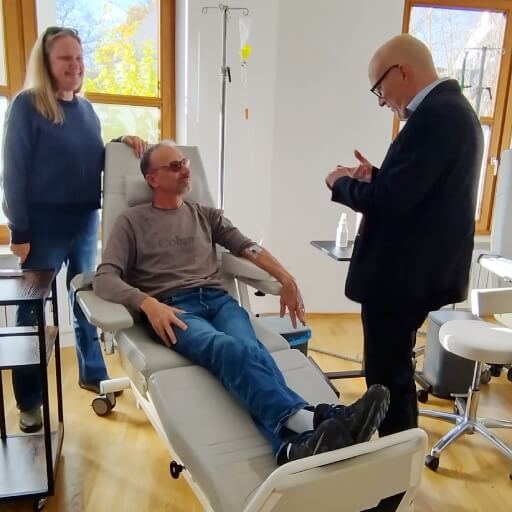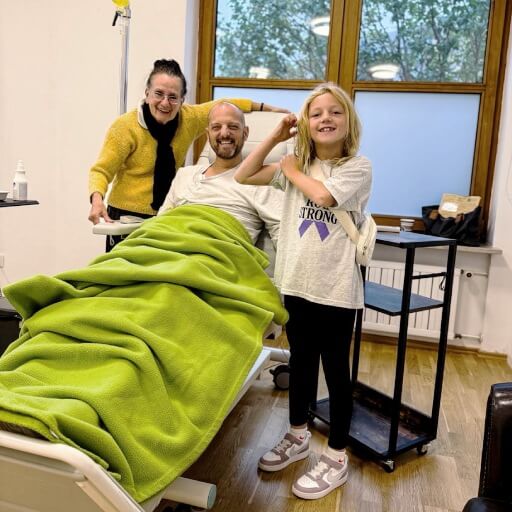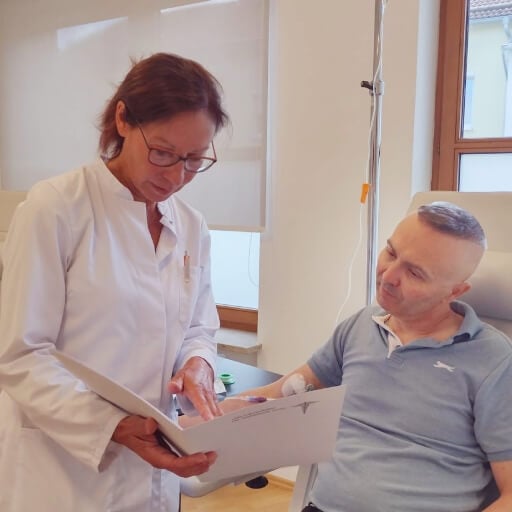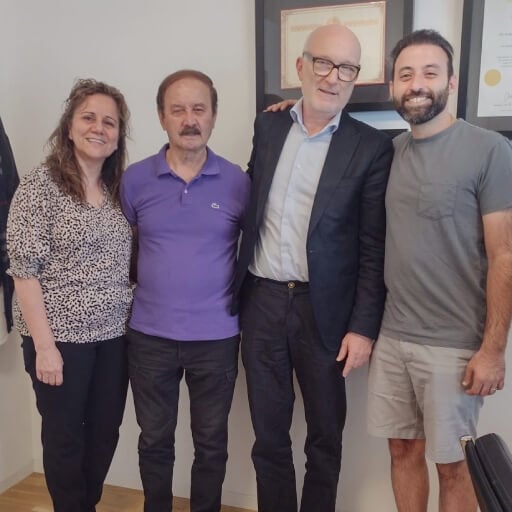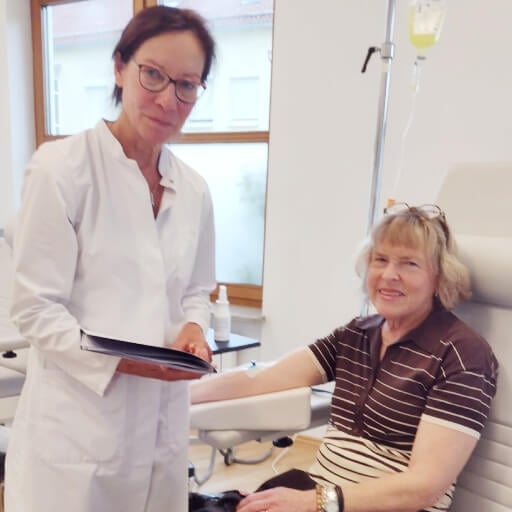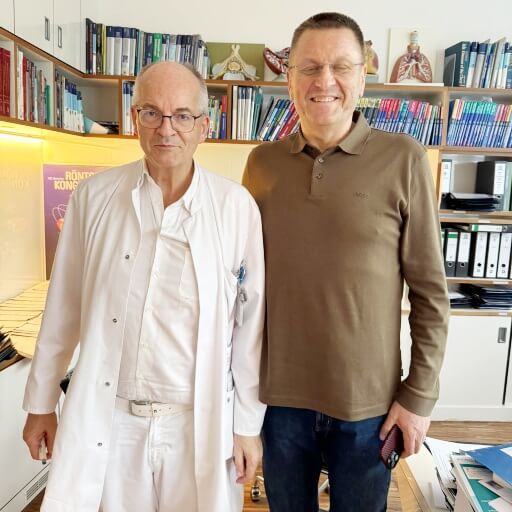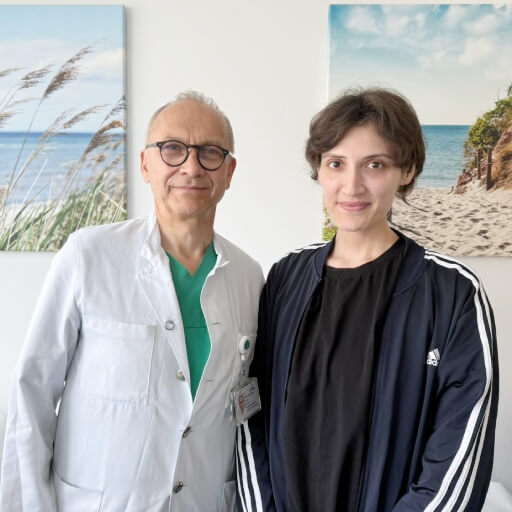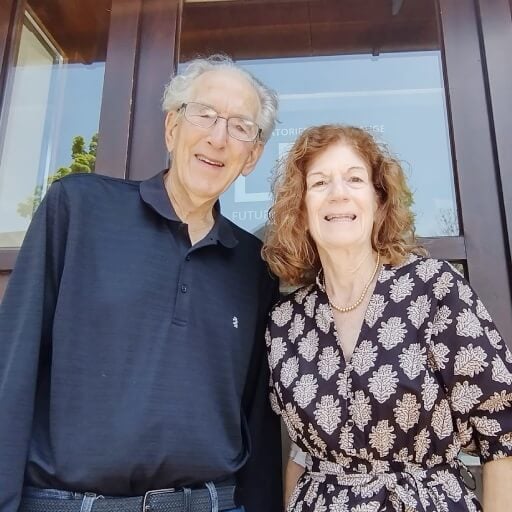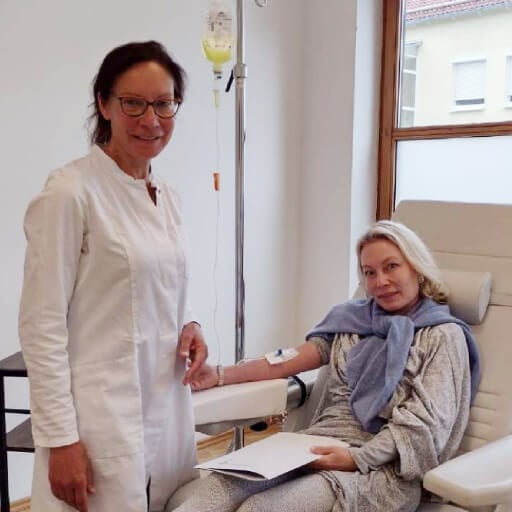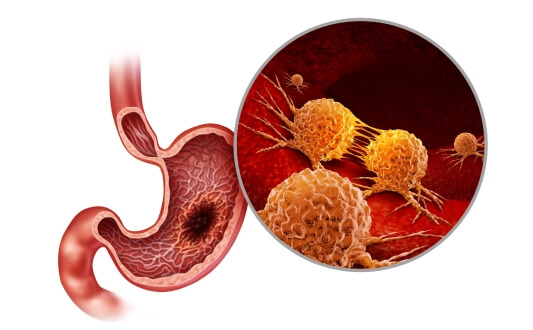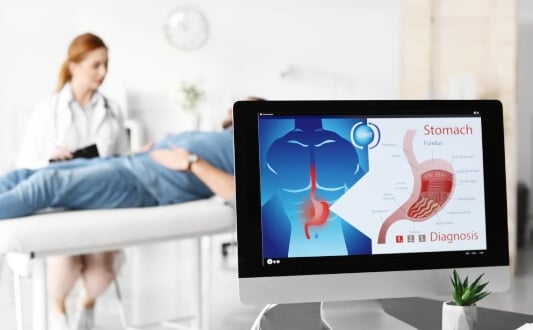The stomach cancer is one of the 10 most common cancers in the world; approximately one million new cases a year are diagnosed. The pathology occurs most frequently in males aged 35 to 40. Gastric cancer diagnosed late means shorter life expectancy than with detection at early stages. That points to the importance of public health efforts to educate about risk factors and encourage medical check-ups. Innovative technologies and new cancer treatment methods allow us now to prolong patients' lives and control tumors at stage 4. Nowadays such methods are common in most German hospitals.
Standard stage 4 gastric cancer treatment
Stage 4 stomach cancer is diagnosed when the tumor is no longer localized and metastases are detected in areas of the body distant from the primary tumor. Unlike early stages, where treatment options are more comprehensive, treatment for most patients includes only chemotherapy, palliative surgery, and control of symptoms of stage 4 stomach cancer. However, this approach carries considerable risks. These are as follows:
- Surgery does not increase the survival rate of patients with stomach cancer.
- Symptomatic therapy can alleviate the condition of patients only in the short term.
- Standard chemotherapy for stomach cancer stage 4 harms the healthy cells in the body, thereby causing various complications.
- Only 15-20% of patients with metastases in the abdominal cavity achieve positive results after chemotherapy. The treatment indicators can be improved by increasing the dose of chemotherapy drugs, but this is impossible due to their toxicity.
Doctors in Germany treat stomach cancer according to improved protocols, which allow them to use high concentrations of chemotherapy drugs, perform successful surgery, and eliminate complications. Moreover, all treatment methods are safe and have fewer complications. Patients with stage four stomach cancer may explore novel treatment options alongside conventional therapies.
Targeted therapy for the treatment of stomach cancer stage 4 in Germany
In the case of stomach tumors, German doctors widely use a new type of drug therapy – targeted therapy. It consists of prescribing drugs that affect individual molecular structures or mechanisms of the vital activity of cancer cells, which ensure their active growth and division. Unlike chemotherapy, this method has many advantages:
- Targeted therapy drugs do not affect the entire body, but only certain targets on the surface of pathological cells.
- Medicines are selected individually, depending on the presence of certain mutations in the genes. The last ones are determined using molecular genetic tests.
- Targeted therapy can be used even in cases when other treatment methods are ineffective.
Targeted therapy at the fourth stage of gastric cancer can be used as a single treatment method, as well as in combination with systemic chemotherapy. The targeted therapy involves using the drugs from the group of inhibitors (blockers) of receptors, molecules, and tumor growth factors [1].
With HER2 receptors, HER2 inhibitors are prescribed. If a signaling protein that stimulates vascular growth (vascular endothelial growth factor) is detected, VEGF inhibitors are used. NTRK inhibitors are used in cases when a protein responsible for the growth and division of stage 4 gastric adenocarcinoma cells is determined.
The course of targeted treatment consists of several doses of drugs, which are prescribed to the patient once in several weeks.
Checkpoint inhibitors for the treatment of stomach cancer stage 4 in Germany
Checkpoints – a system of molecular mechanisms that allow the tumors to evade the body's immune response – are located on the surface of most tumor cells. As a result, the immune system does not recognize malignant cells and cannot destroy them.
Checkpoint inhibitors – immunotherapy drugs that block the molecular mechanisms of tumor masking can be used for patients with stage IV metastatic gastric cancer. As a result, immune aggression against cancer cells is enhanced.
At the advanced stage of gastric cancer, checkpoint inhibitors affecting the PD-1 and PD-L1 proteins are included in the therapy regimen. These drugs do not have an anti-cancer effect, but they make the stomach cancer stage 4 treatment easier to tolerate.
Radiation therapy for the treatment of stomach cancer stage 4 in Germany
Radiation therapy is often advisable for stage 4 metastatic stomach cancer. It helps to eliminate pain and prevent bleeding. Medical facilities in many countries most often conduct total body irradiation, which negatively affects the general condition of patients. However, Germany offers new methods of radiation therapy, which allow specialists to treat stomach cancer with minimal risk of complications.
Many German hospitals carry out this therapy using state-of-the-art linear accelerators. They accurately deliver radiation to the tumor from different angles, without involving nearby organs (bowel, lungs, spinal cord) in the process. In this case, it is possible to regulate the radiation dose, which makes it possible to apply higher radiation doses to a particular body area.
Innovative treatment methods for stage 4 stomach cancer in Germany
In stage four metastatic gastric cancer, German oncologists do everything possible to remove malignant tissue as much as possible, improve the quality of life of patients, and prevent a recurrence. For these purposes, they use the latest methods, which include cytoreductive surgery and HIPEC, chemoembolization of metastases, modern options of drug therapy and radiation therapy, endoscopic procedures, and others.
Hyperthermia for stage 4 stomach cancer: Heat-Based Cancer Fighting Technology
Hyperthermia represents a scientifically proven cancer treatment in Germany that oncologists integrate with traditional therapies to enhance outcomes for advanced cancer patients. This innovative method involves precisely controlled heating of tumor tissue to temperatures between 42-45°C, exploiting cancer cells' increased vulnerability to heat compared to healthy tissue.
German medical centers offer two primary hyperthermia approaches for gastric cancer patients. Local deep hyperthermia targets the abdominal region that is affected by the tumor and delivers focused heat for 60-120 minutes through advanced electromagnetic technology. As reported, research demonstrates that regional hyperthermia combined with chemotherapy significantly improves disease control rates and extends median survival compared to chemotherapy alone. Whole-body hyperthermia heats the entire body to 38.5-40.5°C using infrared systems, creating systemic anti-cancer effects over 2-2.5 hour sessions.
The therapeutic mechanism works for stomach cancer patients on various levels:
- Cancer cells lack oxygen and are thus more easily damaged by heat
- High temperatures alter cellular metabolism and cause programmed cancer cell death
- Heat increases blood flow to tumours and increases penetration of chemotherapy drugs
- Temperature above 40°C activates heat shock proteins that stimulate immune recognition of cancer cells
- Damaged cancer cells lose their ability to repair themselves, amplifying stomach cancer treatments at stage 4
Clinical advantages include virtually no side effects, outpatient treatment availability, and the ability to restore sensitivity in previously treatment-resistant tumors. Patients often experience reduced chemotherapy side effects like nausea and hair loss when hyperthermia is integrated into the protocol of cancer treatment in Germany.
Cytoreductive surgery and HIPEC for stage 4 stomach cancer treatment in Germany
In the case of the spread of stage 4 cancer of stomach to the peritoneum, German doctors perform cytoreductive surgery – removal of visible tumor foci. However, surgical treatment for stomach tumors often causes additional dissemination of cancer cells in the abdominal cavity and their rapid multiplication. To avoid this complication and increase the survival rate for stage 4 stomach cancer, German doctors destroy the remaining abnormal cells using hyperthermic intraperitoneal chemotherapy (HIPEC).
The basic idea behind HIPEC is washing the abdominal cavity with a solution of chemotherapy drugs heated to 40-44 °C. It is better than classical chemotherapy and has the following advantages [2]:
- Hyperthermic intraperitoneal chemotherapy delivers higher drug doses to tumor foci
- Heated solution penetrates cancer cells and increases antitumor activity of drugs
- High concentrations of chemotherapy drugs do not enter into the systemic circulation and produce no side effects
- The effect on cancer cells lasts long after the procedure
Washing with chemotherapy drugs is performed using drainage systems. The procedure lasts about one and a half hours. The technique demonstrates excellent results after a single application, and therefore, repeated procedures are not required.
A specialist from the Department of General and Abdominal Surgery at Asklepios Hospital in Barmbeg, Dr. Michael Lipp, has been at the forefront of HIPEC development since 2015. Dr. Lipp discusses the technical aspects of the procedure, patient selection criteria and the latest developments making HIPEC one of the most promising treatment options for advanced stomach cancer with peritoneal spread.
Leading German Surgeon Dr. Lipp Reveals the Power of HIPEC in Cancer Treatment
PIPAC for stage 4 stomach cancer: Targeted Aerosol Therapy for Peritoneal Metastases
With PIPAC, chemotherapy is delivered by laparoscopic technique directly into the abdominal cavity as a pressurized aerosol for the treatment of stomach cancer stages 4 with peritoneal metastases. This novel technique overcomes the fundamental limitations of systemic chemotherapy by ensuring better drug distribution and penetration into peritoneal tumor nodules that are resistant to intravenous treatments.
German medical centers apply PIPAC with specialized equipment that creates a therapeutic capnoperitoneum at controlled pressure and temperature. Chemotherapy agents are infused as aerosols through laparoscopic ports while maintaining therapeutic pressure for 30 minutes to optimize drug absorption. This targeted delivery achieves higher intraperitoneal drug concentrations without causing systemic exposure and associated toxicities.
This bidirectional approach combining PIPAC with systemic chemotherapy has particular advantages in stomach cancer patients:
- Pressurized aerosol delivery ensures homogeneous drug distribution throughout the peritoneal cavity
- Enhanced drug penetration into tumor nodules up to 5mm depth compared to conventional methods
- Repeated procedures allow for ongoing tumor assessment and treatment modification
- Potential for converting unresectable disease to surgically manageable conditions
- Preservation of quality of life with outpatient treatment capability
Every six weeks PIPAC procedures can be performed repeatedly allowing patients to maintain normal activities between treatments. The technique allows monitoring of treatment response via peritoneal biopsies and cytological assessment in real time for therapeutic strategy optimization.
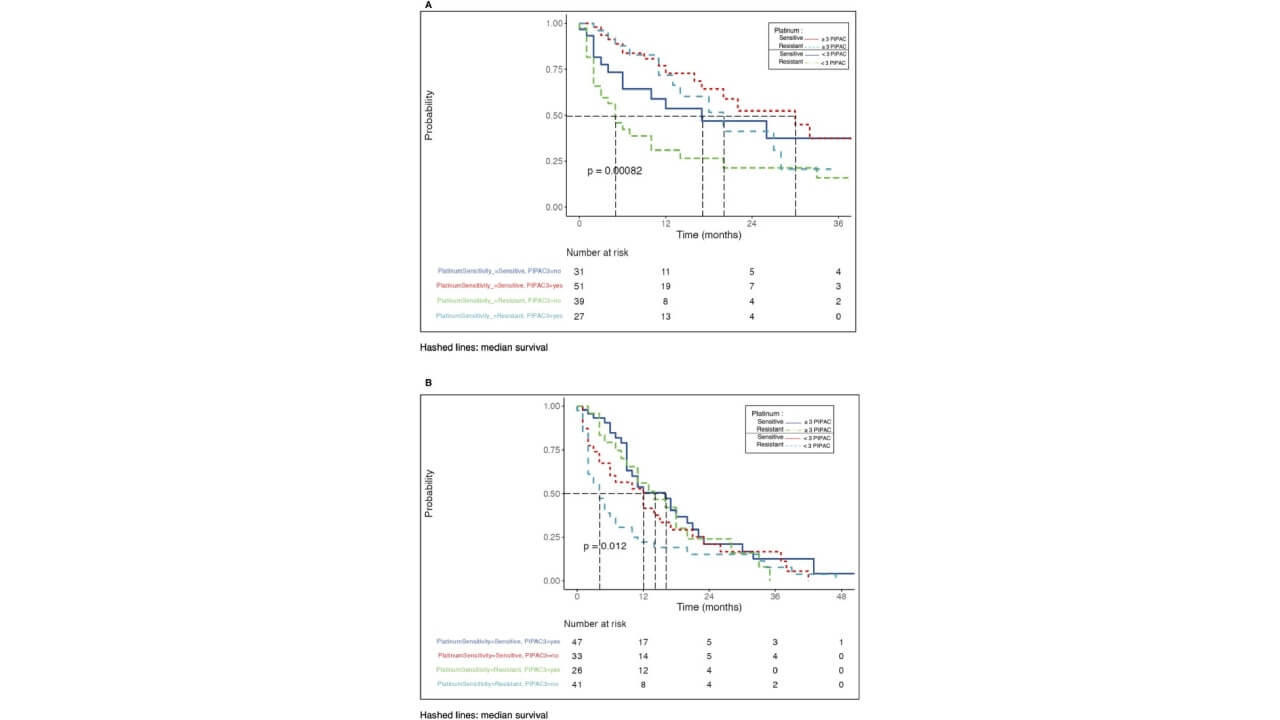
TACE for stage 4 stomach cancer: Targeted Chemotherapy Delivery to Liver Metastases
Metastatic cancer often causes secondary tumor foci in the liver. In this case, transarterial chemoembolization (blockage of blood vessels supplying the tumor) can be performed [3]. It involves the introduction of emboli with chemotherapy drugs into the hepatic artery.
Chemoembolization works using two mechanisms:
- Emboli obstruct the vascular lumen; the tumor does not get enough oxygen and does not grow anymore
- Chemotherapy drugs released from the emboli damage cancer cells
The manipulation is performed through a small incision in the groin. The doctor injects a contrast agent into the femoral artery through a small catheter, which helps detect the vessels of the tumor. The doctor then moves the catheter to the liver vessels under X-ray guidance and performs selective embolization – injects microspheres saturated with chemotherapy drugs.
Selective closure of the branches of the hepatic artery reduces the size of the tumor by several times without the risk of impairing liver function. Chemoembolization in the complex stomach cancer treatment in Germany appears to be effective and safe for health.
Embolization of the arteries feeding the primary tumor is less common for gastric cancer. Most of these procedures are performed on people with advanced gastric cancer to stop bleeding.
Prof. Kovács: When to Use DEB-TACE, Conventional TACE, or Radioembolization (TARE)
Regional Chemotherapy for Stomach Cancer Stage 4
When stage 4 stomach cancer spreads to the peritoneum or liver, systemic chemotherapy often fails – not because the drugs don't work, but because they never reach tumors in sufficient concentration. Regional chemotherapy in Germany solves this fundamental limitation.
How it works. Specialists isolate specific body regions and deliver chemotherapy at 15-20 times normal concentration directly to cancerous tissue – rather than flooding your entire bloodstream with diluted drugs. The mechanism exploits tumor biology: cancer cells absorb these concentrated drugs while healthy tissue remains protected.
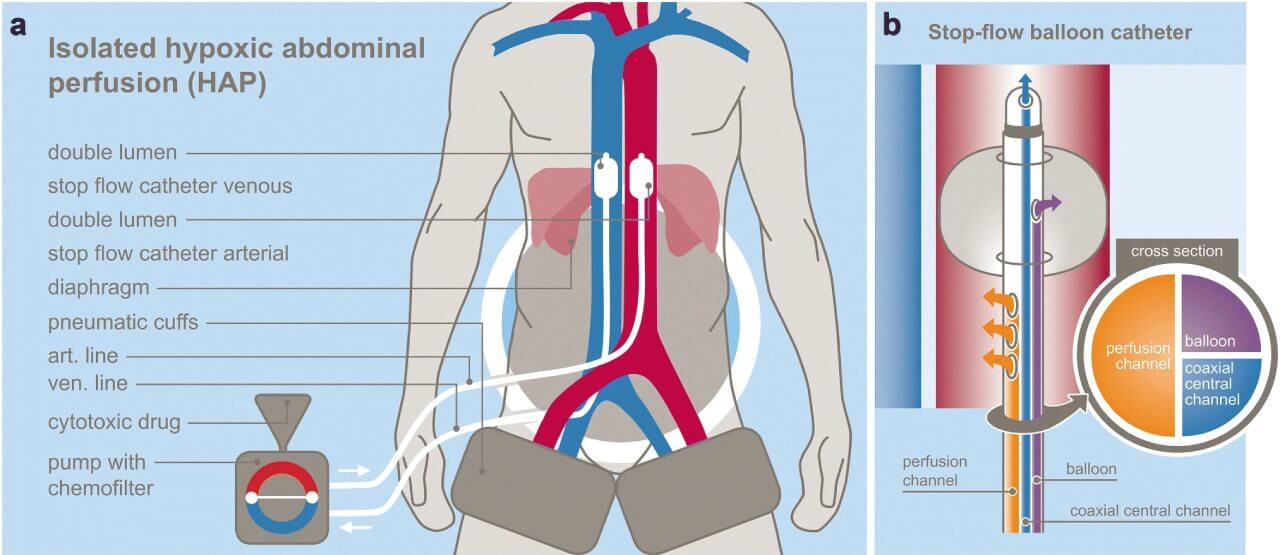
Procedure stages. Interventional radiologists begin with diagnostic imaging to find tumor-feeding arteries. Under local anesthesia, they advance thereto thin catheters through a small groin incision. For peritoneal spread, hypoxic abdominal stop-flow perfusion temporarily halts circulation – trapping drugs exactly where metastases concentrate. Upper abdominal perfusion targets the gastric region intensively. And intraarterial infusion delivers chemotherapy through tumor vessels. Blood filtration follows the main intervention, removing residual drugs and eliminating systemic toxicity.
Benefits for advanced disease. German centers achieved 17.4-month median survival in patients with peritoneal metastases who had exhausted all standard options – extending to 23.5 months post-resection. Zero Grade 3 or 4 toxicity across 114 cycles, and patients walk within hours. [7]
Electrochemotherapy for Stomach Cancer Stage 4
German medical centers pioneered combining electrical physics with chemo to create a breakthrough electrochemotherapy treatment for metastatic stomach cancer. The innovation stems from understanding cellular barriers: cancer cell membranes normally block chemotherapy molecules, but controlled electrical pulses change everything.
Mechanism explained. Brief electrical currents create temporary nanopores in tumor cell membranes. These are microscopic pathways that remain open just long enough for chemotherapy to flood inside – at 70-80% greater concentrations than other methods permit. The pulses are precisely calibrated: strong enough to perforate cancer cells, gentle enough to spare surrounding tissue.
Procedure overview. German anesthesiologists ensure complete comfort through general anesthesia. Surgeons position specialized needle electrodes at exact 2.5-3 cm intervals around tumors using advanced imaging guidance. Computer-controlled generators synchronized to your cardiac rhythm deliver pulses that create cellular doorways. Chemotherapy immediately surges through these openings.
Stage 4 advantages. Electro-chemotherapy is particularly valuable when tumors involve vital structures where surgery risks too much damage. It is also effective against peritoneal metastases resistant to conventional approaches.
Investment consideration. The cost of electrochemotherapy in Germany ranges from €7,500-12,000 – often less than repeated conventional chemotherapy cycles. Many patients find electrochemotherapy cost worthwhile given precision and reduced systemic side effects.
Professor Karl Aigner developed much of this methodology and has carried out almost 20,000 procedures, establishing Germany as the global leader in this innovation. His interview explains how combining regional perfusion with ECT creates hope for advanced gastric cancer patients.
Dendritic Cell Vaccines for stage 4 stomach cancer: Precision Immune Training
As one of the most sophisticated immunological breakthroughs in modern oncology treatment, dendritic cell therapy won Ralph Steinman the Nobel Prize in Physiology or Medicine in 2011 for discovering these immune system "generals." [4] Germany's medical centers are the first to offer stage 4 stomach cancer patients personalized vaccines that train the immune system to recognize and kill cancer cells precisely.
The therapeutic concept utilizes dendritic cells as the most powerful antigen-presenting cells of the human immune system. Such specialized cells serve as immune educators capturing tumor-specific antigens and presenting them to T-lymphocytes to induce long-term anticancer immunity. Especially attractive for stomach cancer patients is that this approach can induce strong immune memory after a single treatment cycle.
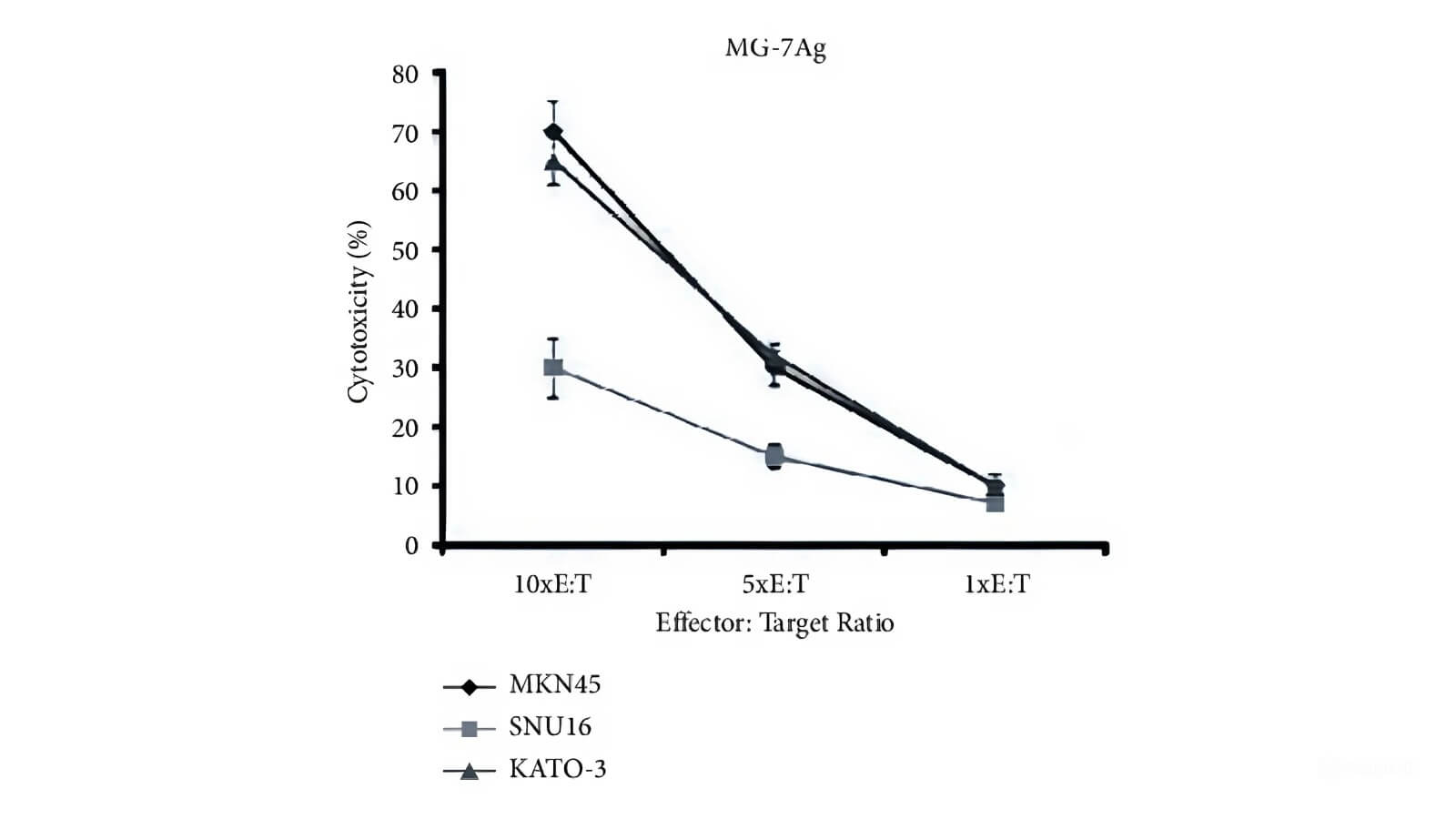
German clinics follow a one-week two-step outpatient protocol. During the first consultation, physicians collect 150-200ml of patient's blood in controlled laboratory conditions regulated by European medicines agencies and German regional councils. Patients' monocytes are then cultured with growth factors and tumor antigens to become mature dendritic cells enriched with cancer-specific information.
The treatment process demonstrates remarkable efficiency and safety advantages for gastric cancer patients:
- Single vaccination creates lifelong anticancer immunity through the immune system's memory
- Outpatient procedure requires only two clinic visits that are separated by one week
- No significant side effects or complications reported in clinical studies
- Compatible with concurrent chemotherapy and radiation therapy
- Complete tumor regression achieved in documented clinical cases
Personalized dendritic cell vaccines address the molecular fingerprint of each patient's cancer. Unlike conventional therapies that target all rapidly dividing cells, these vaccines teach the immune system to distinguish cancer cells from healthy tissue based on tumor-specific mutations and antigens.
German immunotherapy expert Professor Frank Gansauge with more than 22 years of experience in dendritic cell therapy has documented the treatment's clinical potential. In advanced cancer cases his clinic has achieved complete responses, while some patients remain cancer-free for more than five years. Professor Gansauge tells us about this revolutionary treatment approach and why dendritic cell vaccination is the future of personalized cancer immunotherapy.
Leading Immunotherapy Expert Prof. Frank Gansauge: "Revolutionizing Stomach Cancer Treatment with Dendritic Cell Therapy"
Comfort-Focused Palliative Stage 4 Gastric Cancer Treatment
Stage 4 stomach cancer can make patients and their families experience difficult moments as complications affect daily life and well being. The biggest challenges are bleeding and difficulty eating because of blockages – both overwhelming but manageable with compassionate, expert care.
German medical teams understand these fears and respond with gentle, minimally invasive cancer treatments designed to restore comfort quickly. When bleeding occurs, skilled physicians use advanced endoscopic procedures, carefully guiding tiny instruments to locate and seal problem areas without causing additional distress. These procedures stop bleeding – often giving immediate relief and peace of mind.
When tumors block the digestive pathway, preventing normal eating and causing painful symptoms, German specialists offer hope through personalized solutions. For immediate relief, they can place a small expandable tube that reopens the passage, typically allowing patients to enjoy meals again within days. For those who might benefit longer, they create a bypass route that maintains normal digestion for months ahead.
Every treatment decision considers the wishes, comfort level, and goals of the patient, so every day can be lived with dignity and can be shared with loved ones.
So, Why Go For Stage 4 gastric cancer treatment in Germany?
Germany is an international leader in advanced stage oncology treatment and offers patients cutting edge treatments and world class medical expertise that may improve prognosis for stage 4 stomach cancer.
The best stomach cancer treatment in the world has several key foundations:
- Exceptional medical expertise. The German oncologists complete intensive 6-8-year post-medical school specialized training, including obligatory research and international clinical experience.
- Comprehensive support. European healthcare standards offer comfortable rehabilitation facilities, personalised care coordination and integrated support services for medical and emotional needs.
- Advanced treatment technologies. German hospitals have the most sophisticated equipment for precision radiation therapy, robotic surgical treatment, dendritic cell vaccines manufacturing, etc.
- Access to innovative treatment. Patients may participate in clinical trials not offered elsewhere.
- Strict quality standards. German cancer centres meet rigorous certification requirements and continuing education requirements for their physicians.
It is this combination of expertise, technology, and compassionate care that creates an optimal environment for achieving the best possible outcomes.
How to undergo treatment of stage 4 stomach cancer in the German clinics?
High medical standards and new therapeutic options attract many international patients to advanced treatment of stage 4 cancer in Germany. For those considering treatment abroad, professional medical tourism service Booking Health assists with coordinating in a foreign healthcare system.
Booking Health cancer specialists assist with the following issues:
- Personalized selection of the best hospital with high success rates in the treatment of stage 4 gastric cancer.
- Preparation of a diagnostic, interventional, or conservative treatment program without repeating previously performed procedures.
- Minimum prices – the average cost of treatment is lower due to the absence of additional coefficients for medical tourists.
- Preliminary consultation with an experienced doctor.
- Doctor's appointment on the most suitable dates.
- Document preparation and provision of insurance against complications during treatment.
- Control of invoices and return of unspent funds.
- Treatment monitoring at all stages.
- Emergency organization of additional medical procedures.
- Booking airline tickets, hotel rooms, and meeting at the airport and transferring.
Patients considering treatment in German clinics can get information about programs, costs and coordination from the professional medical tourism organization Booking Health. It enables patients to focus on treatment while experienced coordinators manage logistics and other aspects of receiving care abroad.
International Cancer Care: Patient Stories with Booking Health
Frequently Asked Questions of Our Patients About Stage 4 Stomach Cancer Treatment
Send request for treatmentHealthcare professionals use such treatment options as chemotherapy, targeted therapy, immunotherapy and palliative care. Surgeons also use hyperthermic intraperitoneal chemotherapy (HIPEC).
Benefits are access to state of the art medical technology, experienced oncologists, and personalized treatment plans. German clinics offer innovative therapies and clinical trials.
Effectiveness is monitored through regular imaging tests and blood tests. These help doctors determine the therapeutic results and make adjustments to the regimen.
Risks vary by treatment. They can include side effects such as nausea or fatigue, and an increased risk of infections. Close monitoring and supportive care help manage risks effectively.
Cure for stage 4 stomach cancer is uncommon. However, advanced treatments in Germany help control the disease and improve quality of life. Management of symptoms and extending survival are the priorities.
Yes, it can. Immunotherapy in Germany uses checkpoint inhibitors and personalized dendritic cell vaccines. These treatments are effective even when other methods fail.
Stomach cancer treatment cost varies depending on the specific therapeutic regimen. A stomach cancer package in Germany typically includes care coordination and comprehensive treatment.
Yes, German hospitals welcome international patients that seek advanced stomach cancer treatment. Booking Health coordinates care and ensures patients receive world-class treatment.
University Hospital Duesseldorf, University Hospital of Ludwig Maximilian University of Munich, University Hospital Ulm. These are hospitals that offer cutting-edge stomach cancer treatment in Germany.
Yes, Booking Health provides comprehensive coordination. It includes hospital selection, treatment planning, cost optimization, and logistics. Connecting patients with experienced specialists abroad leads to treatment success.
Stage 4 gastric cancer occurs when the tumor spreads to distant organs or lymph nodes. Metastatic stomach cancer represents the most advanced stage of disease that requires specialized treatment.
While cure is uncommon, incurable cancer treatment in Germany focuses on quality of life improvement. Advanced therapies impact significantly the stage 4 stomach cancer prognosis and patient outcomes.
Doctors use targeted therapy, immunotherapy, HIPEC, PIPAC, and dendritic cell therapy. Life expectancy improvement is achieved via combination of traditional approaches with innovative treatments.
Dendritic cells are immune system cells that work against oncology. This cancer immunotherapy in Germany trains the immune system to recognize and eliminate malignant cells.
Modern technologies and expertise contribute to improving stomach cancer survival in Germany. German cancer centers offer better symptoms management and more months of life.
The price of gastric cancer treatment in Germany depends on the therapeutic regimen. Germanу offers transparent pricing that ensures access to world-class care at competitive rates.
Treatment costs vary depending on the therapy. For instance, vaccination with dendritic cells is about 20,000-38,000 EUR, TACE – 6,500-24,000 EUR, PIPAC – 18,000-20,000. With Booking Health bills from clinics will not include fees for foreigners.
Choose treatment abroad and you will for sure get the best results!
Authors:
This article was edited by medical experts, board-certified doctors Dr. Nadezhda Ivanisova, and Dr. Bohdan Mykhalniuk. For the treatment of the conditions referred to in the article, you must consult a doctor; the information in the article is not intended for self-medication!
Our editorial policy, which details our commitment to accuracy and transparency, is available here. Click this link to review our policies.
Sources:
[1] Bang YJ, Van Cutsem E, Feyereislova A, Chung HC, Shen L, Sawaki A, et al. Tr-mab in combination with chemotherapy versus chemotherapy alone for treatment of HER2-positive advanced gastric or gastro-oesophageal junction cancer (ToGA): a phase 3, open-label, randomised controlled trial. Lancet. 2010;376(9742):687-97. doi: 10.1016/S0140-6736(10)61121-X. [DOI]
[2] F Coccolini, E Cotte, O Glehen, M Lotti et al. Intraperitoneal chemotherapy in advanced gastric cancer. Meta-analysis of randomized trials. Eur J Surg Oncol. 2014 Jan;40(1):12-26. doi: 10.1016/j.ejso.2013.10.019. [DOI] [PubMed]
[3] Thomas J Vogl, Tatjana Gruber-Rouh, Katrin Eichler et al. Repetitive transarterial chemoembolization (TACE) of liver metastases from gastric cancer: local control and survival results. Eur J Radiol. 2013 Feb;82(2):258-63. doi: 10.1016/j.ejrad.2012.10.006. Epub 2012 Nov 3. [DOI] [PubMed]
[4] Roman Volchenkov, Florian Sprater, Petra Vogelsang, Silke Appel. The 2011 Nobel Prize in physiology or medicine. Scand J Immunol. 2012 Jan;75(1):1-4. doi: 10.1111/j.1365-3083.2011.02663.x. [DOI] [PubMed]
[5] Bohui Zhu, Yiyuan Sun, Xiaoqing Wei et al. Dendritic Cell Vaccine Loaded with MG-7 Antigen Induces Cytotoxic T Lymphocyte Responses against Gastric Cancer. J Healthc Eng. 2022 Apr 18;2022:1964081. doi: 10.1155/2022/1964081. [DOI] [PMC free article]
[6] Amaniel Kefleyesus, Aditi Bhatt, Cecilia Escayola et al. Descriptive review of current practices and prognostic factors in patients with ovarian cancer treated by pressurized intraperitoneal aerosol chemotherapy (PIPAC): a multicentric, retrospective, cohort of 234 patients. Front Oncol. 2023 Aug 24:13:1204886. doi: 10.3389/fonc.2023.1204886. eCollection 2023. [DOI] [PubMed]
[7] Aigner K, Vashist YK, Selak E, Gailhofer S, Aigner KR. Efficacy of Regional Chemotherapy Approach in Peritoneal Metastatic Gastric Cancer. J Clin Med. 2021;10(23):5322. https://doi.org/10.3390/jcm10225322 [DOI]
Read:
Stomach Cancer Treatment Guide
Article menu:
- Standard stage 4 gastric cancer treatment
- Targeted therapy for the treatment of stomach cancer stage 4 in Germany
- Checkpoint inhibitors for the treatment of stomach cancer stage 4 in Germany
- Radiation therapy for the treatment of stomach cancer stage 4 in Germany
- Innovative treatment methods for stage 4 stomach cancer in Germany
- Comfort-Focused Palliative Stage 4 Gastric Cancer Treatment
- So, Why Go For Stage 4 gastric cancer treatment in Germany?
- How to undergo treatment of stage 4 stomach cancer in the German clinics?
- Frequently Asked Questions of Our Patients About Stage 4 Stomach Cancer Treatment
Don't know where to start?
Contact Booking Health
